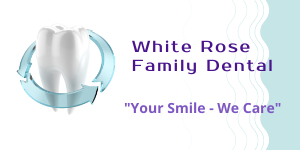Dental Scaling vs. Regular Cleaning
You may be wondering if you are a candidate for dental scaling. Or, perhaps your dentist has suggested scheduling you for dental scaling, and you are wondering how this procedure will differ from your basic cleaning. There are several differences between dental scaling and regular cleaning at your dentist. This article will help you understand what those differences are and exactly what to expect from your cleaning or scaling appointment.
Who Needs Regular Cleanings?
Everyone should get regular dental cleanings from their dentist. It is recommended that adults and children both visit the dentist every six months to have their teeth examined and cleaned. These preventive visits help to ensure optimal dental health and can prevent cavities, tooth decay, and gum disease.
What Does a “Regular Cleaning” Consist Of?
Examination
A typical cleaning at your dentist’s office starts with a dental hygienist examining your entire mouth. The hygienist will use a small mirror as they check around your gums and teeth for potential areas of gingivitis or inflamed gums. If they see anything concerning, your hygienist will bring in the dentist to take a closer look.
Scraping
After the initial exam, the hygienist will begin the cleaning process. This consists of the hygienist using a scaler to remove any plaque or tartar(calculus) around your gum line, as well as in between your teeth. They will gently scrape areas of plaque, removing it from your teeth. Depending on the amount of tartar on your teeth, you may hear more or less scraping.
Brushing
After scraping, your hygienist will brush your teeth with a high-powered electric toothbrush to get rid of any remaining tartar. Professional cleanings use a gritty toothpaste that gently scrubs your teeth. Although grittier than normal toothpaste, it will taste and smell like the toothpaste you use at home.
Flossing
Flossing may seem unnecessary, but it helps to remove any leftover bits of tartar or plaque in between the teeth that were loosened by the scraping and brushing, but were not yet removed. The hygienist will also pay close attention to your gums, looking for any areas that may bleed from flossing. This is a sign of inflammation of the gum and a sign that you need to floss that area more closely in the future.
Rinsing
After all of the cleaning, you will rinse with water and be asked to swish and spit. Rinsing will not only feel pleasant after the cleaning, but help to remove remaining bits of toothpaste or plaque.
Fluoride Treatment
Finally, your doctor may suggest a fluoride treatment to help protect the enamel of your teeth from future cavities. The fluoride is quickly painted on with a tiny brush and left to dry. It hardens upon contact with saliva, so you can eat and drink after approximately 30 minutes from the application of topical fluoride.
Who Needs Dental Scaling?
You may be a candidate for dental scaling if you have advanced gum disease. In cases of severe gum disease or periodontitis, dental scaling, and root planing can remove the tartar and treat inflamed gums. Patients who have a history of smoking or tobacco use, or those who have not seen a dentist in years leading to excessive tartar build up and those who have a family history of gum disease are good candidates for scaling and root planing with irrigation of specific medicines in the pockets depths to combat bacterial growth and infection.
What is Dental Scaling?
Dental scaling is a deep cleaning below the gumline. Sometimes, the bacteria from plaque can cause your gums to become inflamed and pull away from your teeth, creating spaces called pockets. Plaque can then become trapped in these pockets and cannot be removed by regular brushing. That’s when scaling becomes necessary. If untreated, this type of gum disease could cause bone and tooth loss. When gum disease is caught early enough, professional cleaning is enough to remove the plaque and protect the gum line; however, if the pockets between your gums and teeth are too deep, scaling may be necessary to reverse the gum disease and protect your oral health.
There are two parts to dental scaling: the scraping or cleaning of plaque from these deep pockets is the first step, and the second step is called “root planing.” Root planing consists of smoothing the roots of your teeth to help your gums reattach to your teeth.
Scaling and root planning may take more than one visit to complete. Depending on your pain tolerance and the sensitivity of your gums, you may require a local anesthetic. It is normal to experience some soreness for 1-2 days after dental scaling. Tooth sensitivity can last for up to a week after scaling but should lessen over time. Your dentist may prescribe a pill or mouth rinse to avoid potential infection. A follow-up appointment will be scheduled to check on your healing process and the success of the scaling and root planning.
Whether you require a general cleaning or a more intense dental scaling, you can rest assured that your dentist is a medical professional who is trained to complete these procedures. You will be treated with the utmost respect and gentleness as your dentist works to restore your teeth and gums to their optimal health. If you have any questions or concerns, always ask your dentist.
If you are looking for a dentist in York, PA, call us today at (717) 822-0272 or click here to schedule your appointment.
